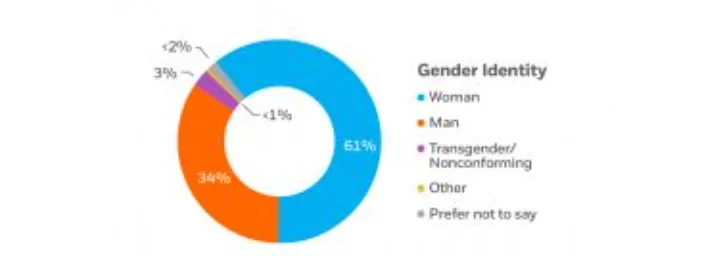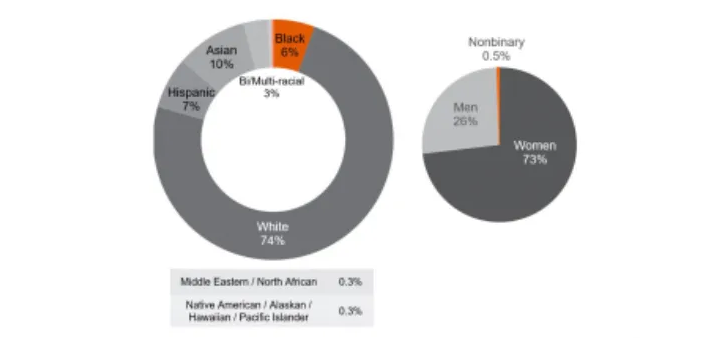In the latest edition of the SHuSH newsletter, Kenneth Whyte considers a recent online brouhaha featuring novelist Joyce Carol Oates and notes that while she was being dragged by the usual online mob for her perceived defence of “white” authors, an even bigger problem for the ever-diminishing number of “big” publishing houses is their gender balance:
Publishing also has a gender problem. Only 34 per cent of the Penguin Random House workforce is male.
When you eliminate the warehouse staff, that figure drops to 26 per cent.
A Lee & Low survey from 2019 put the male component of the US publishing workforce at 24 per cent and a Canadian survey (referenced in SHuSH 90) found our publishing sector is 74 per cent women and 18 per cent men. Oates’ critics, many of them women, skated over this part of the equation.
That’s not unusual. Most people in publishing skate over this part of the equation. A few years back, when it was revealed that men are just 20 per cent of the fiction reading public, the question arose, might that have something to do with the lack of men acquiring and marketing books. Hardly anyone in publishing thought so. As I noted at the time, a Random House spokesperson said the gender composition of the firm was “not an issue of concern or even much contemplation for us”. And the head of Columbia U’s publishing program asserted that “great literature transcends gender in terms of editors”. A UK literary agent attributed the gender disparity in fiction to merit: some men, she said, “just aren’t very good”.
I spoke to several agents this week to see if the agent mentioned by Oates was an anomaly. What I heard suggests not. My agents were not surprised by the assessment of the anonymous agent. One just shrugged, as in, “what’s new?”
Whether the comments following the Oates’ tweet are valid — “it’s about time”, or “welcome to the oppressed, now you know what it feels like” — I’m probably not qualified to say. The real issue, which seems to be missed in this conversation, is that work is very often not judged by its quality but by who the author is and what the author represents. (Not a wholly new phenomenon in the world.) It is heartbreaking to see work of real talent, maybe even genius, being rejected by publishers (and I do see this in action) in favour of an author who has the right name and biometrics.
Not all of my agents agreed with Oates’ anonymous agent. One said, “It’s equally hard to sell everybody in this market. I’ve got white authors, black authors, brown authors. It’s hard to get a good deal anywhere. The consolidation in the industry is real: there are fewer editors to pitch books to than there used to be.”
This agent admits that the trend is now toward loading up on BIPOC authors but believes that will blow itself out, as all trends do, and the publishing houses will all chase after the next shiney thing. As for the situation inside publishing houses, “it’s been tough for guys as long as I’ve been in the business. Talk to the white male editors who sit on editorial boards at publishing house and they’ll tell you, it’s tough, there’s a lot of pushback from the other voices around the table.”
This agent also noted that the agency world is starting to break down along gender lines. Not surprisingly, literary agents are overwhelmingly white women. Increasingly, they are representing only women.





